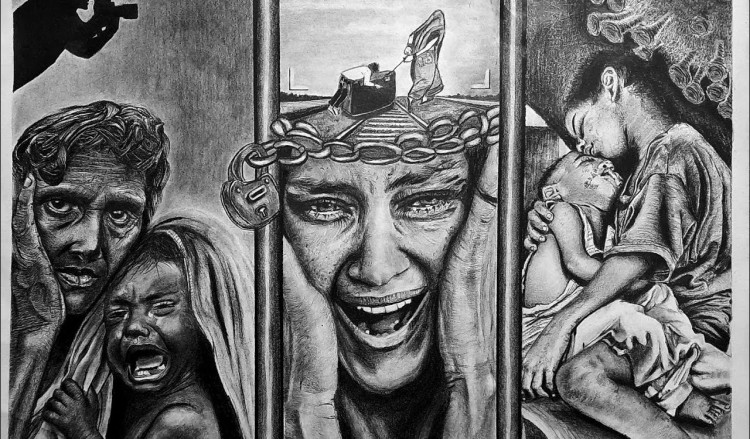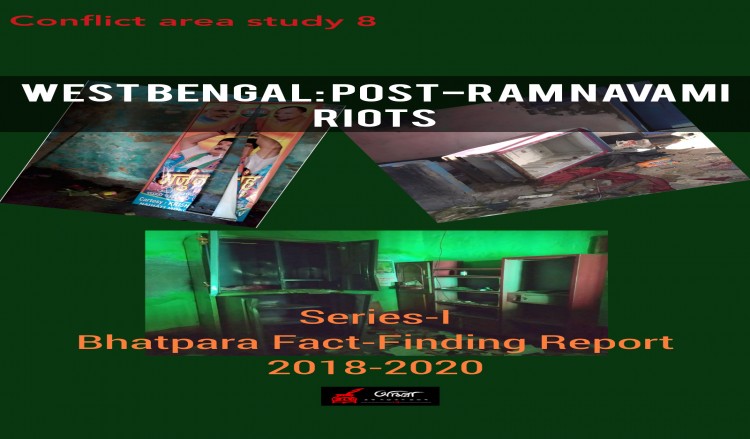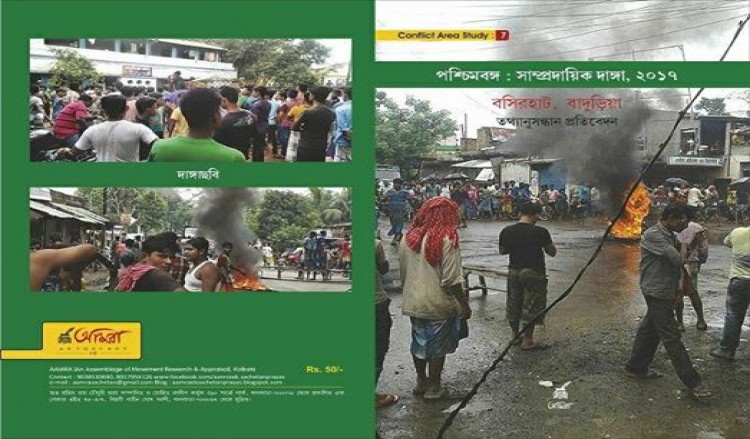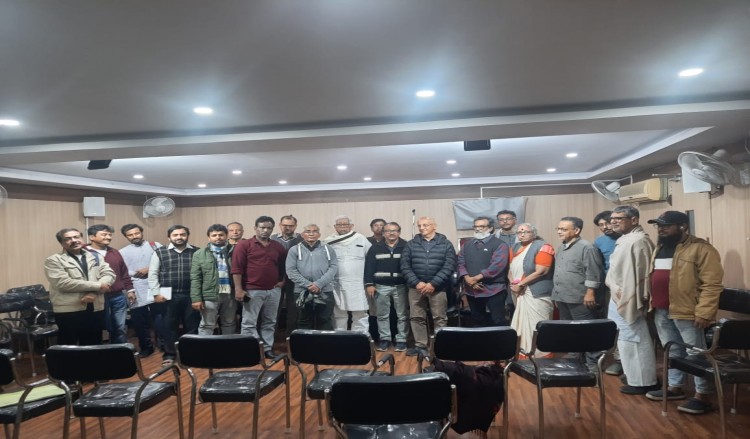
Discussion on plausible Agendas for the Lok Sabha Elections (2024) With Dr. Harsh Mandar, 23 January, 2024
Repealing all the Citizenship Amendment Acts and resuming with the citizenship norms established in the Citizenship Act (1955). Employment from NREGA should be increased to at least 200 days per year with a minimum wage of Rs.800 per day for all eligible workers. Withdrawal of cases filed against all individuals of Bhima Koregaon. All policies that lead to the corporatisation of education should be stopped, with extensive implementation of the RTE Act (2009). Climate Change should assume a central axis in all future policy making. There should be a stringent legislation to stop the state from sponsoring any and all forms of religious practices (financial or otherwise). Gender issues should be fundamentally integrated into all election manifestos as well as all policy documents.
Discussion on plausible Agendas for the Lok Sabha Elections (2024)
With Dr. Harsh Mandar
Raya Debnath Sabhagriha, Rammohan Library January 23, 2024
Kolkata
A discussion was held on plausible agendas for the upcoming Parliament Election in Kolkata. AAMRA (An Assemblage of Movement Research and Appraisal), Kolkata organized this dialogue. Other important organizations and individuals took part were-
- Paschim Banga Khet Majoor Samity (PBKMS)
- Association for Protection of Democratic Rights (APDR)
- Paschim Banga Cha Majoor Samity (PBCMS)
- Centre of Inclusive Development and Charitable Trust (CIDCT)
- Bengal Peace Centre (BPC)
Individuals participation from different area of activities were-
1. Jiten Nandi, 2. Ranjit Shur (APDR), 3. Dr.Suman Nath (Professor, APJ Abdul Kalam College), 4. Dr. Amitava Sengupta (Professor, Bengal State University), 5. Uttam Gayen (PBKMS), 6. Tapojay Mukherjee (PBKMS), 7. Faruq Ul Islam, 8. Samindra Sarkar, 9. Partha Sengupta (CIDCT), 10. Anis Uddin (Atheist), 11. Debargha (Student activist), 12. Vijay Rajak, 13.Bolan Gangopadhyay, 14. Pradip Dutta (Environmentalist), 15. Matiur Rahaman, 16. Subhankar Sengupta, 17. M.N.Roy, 18. A.K.Samanta, 19. Aniruddha, 20. Debasish Sengupta, 21. Subha Protim, 22. Mohit Ranadip
The very existence of the post-independence Constitution of India is on the verge of abolishment. Irrespective of whatever issues and critiques we might have of the electoral political parties of our countries, the threat posed by the BJP overshadows all of them. So, before we can go on to fight our respective political battles, BJP needs to be defeated.
The transitioning of the secular India into a Hindu Rashtra has already been initiated.
One primary shortcoming of the ‘Opposition’ is that there is no positive tangible quotient in their election campaigns other than refuting the negative politics of the BJP. They have no clear outline or formulation of what they would do positively, in tangible terms, if they beat the BJP and its allies in the electoral race, and assume power.
It seems to be an ideological battle with huge ideological confusions.
Taking into account the ability of Dr. Mandar’s ability to articulate critical public policies, the INC’s Manifesto Committee for the upcoming polls has requested him to draw up a comprehensive public opinion in a form that can be tentatively incorporated into their manifesto. They have demarcated a period of a fortnight for the same.
While there exists this specific agenda for this discussion, this can also be used to formulate clear electoral demands and objectives that can be placed to all parties participating against the BJP in the upcoming elections, as well as having a clear set of policy agenda in front of ourselves.
The first meeting on ‘Economy and Employment’ was held with economists like Jayati Ghosh and Jean Dreze. Dr. Mandar is working separately with two sub-groups of policy experts on education and health.
Common Policy Proposals gathered till date:
- Commitment to the preservation of religious statues, monuments and artifacts as pet the Places of Worship (Special Provisions) Act (1991).
- Formulation of the clear bounds, definitions and context to the Citizenship Amendment Acts and their implications.
- Changes related to Cow Protection laws, Anti- Love Jihad laws, etc.
- Introduction of Samvidhan Kendras – local youth clubs (which can be named Gandhi-Ambedkar Clubs) for socialized understanding of the Constitution and its contents.
- Commitment to the introduction of an unbiased, scientific reading of History, restoring changes in history books.
- Ban on new religious processions, meetings, etc.
- Formulation of a comprehensive Anti-Discrimination Law to broaden the domain of the prevalent SC/ST Atrocities Act so as to include all marginalized and minority sections of the society, including specific provisions for religious, ethnic and gender-sexual minorities.
- Clear categorization of Welfare Schemes for Minorities, and their needs. (Hajj subsidy should not find relevance while academic scholarships should)
- Strengthening Hate Speech Laws in both real and virtual domains, including media. (Hate speeches are only considered criminal if they directly incite violence, at present. It should completely encompass any and all forms of abridgement of the constitutional rights, direct or indirect, of all minorities.)
- A clear commitment to the State’s Impartial Rule of Law.
- Accountability of Policing Agencies, as opposed to unchecked empowering of those agencies.(At the very least, making agencies like the ED, CBI, CRPF, etc. legally answerable to the NHRC)
- Introducing Liberal Arts onto the curriculum of all higher academic courses, including technical education, as proposed originally by Prof. Amartya Sen.
- Implementation of ‘Rohith Vemula’ Equal Opportunities Law and Cell in all academic institutions.
- Banning terrorist organizations like Bajrang Dal. (Clear definitions related to the contextualization of the term ‘terrorism’ yet to be determined)
- Committing direct allocation of a percentage of the GST to the local administrative offices (Panchayats, Municipality Bureaus, etc.)
- Fulfillment of all vacant positions in all Government institutions. (Regularization and permanency of all jobs, including those that are currently of a casual and/or temporary nature, with a well-regulated minimal pay bound.)
- Stopping the Agniveer Program entirely. (It creates a potential militia that can compromise the internal security of the nation)
- Formulation of Laws for increasing employment of Women in Urban areas and ensuring Urban Employment Guarantee for Women (to combat the reducing percentage of women in the urban workforce).
- Representation-based reservations in Higher Judiciary (SC, ST, Women, etc.)
Dr. Mandar – Expectation of opinions focusing on, but not limited to these broad themes-
- Situation of Muslim and/or minority population post-CAA(2019)
- Status and situation of Employment and Economy
- Status and situation of Labour Rights
- Public Health Rights
Suman Nath –
- Clear identification of issues related to corruption and systemic uprooting of the same should be given priority.
Dr. Mandar –
- The nature of the economy is shifting to Russian type oligarchy. This needs to be addressed.
Bolan –
- Corporatization of at least the Health and Education (Primary) sectors needs to be stopped. (Free and quality Health and Education services should be ensured.)
PBKMS –
- MSP should be declared all agricultural crops, at all places and for all concerned individuals in the country.
- Employment from NREGA should be increased to at least 200 days per year with a minimum wage of Rs.800 per day for all eligible workers.
- Legally guaranteed ownership certificates (patta) should be provided for the residences of all tea plantation workers.
- Statutory benefits (PF, ESI, etc.) for permanent workers should be implemented for all plantation workers and other workers in urban areas overall who are not subject to the same, along with a minimum daily wage of Rs.800.
- Pending work and pending payments for previous works of all NREGA workers need to be cleared.
- Formulation of a clear government budget for workers.
- Ensuring the implementation of distinct Labour Laws protecting the Rights of Migrant Workers.
- Proper implementation of the Ration distribution by the PDS in accordance to relevant laws (Presently, the ‘One Nation, One Ration’ Scheme).
- Regular wage increment and regular employment for all government workers.
- Compulsory biometric verification related to presently AADHAR-linked services needs to be abolished.
Bolan –
- Withdrawal of cases filed against all individuals of Bhima Koregaon.
PBKMS –
- Repealing of all Constitutional Amendments brought around by the BJP while being the single Majority Party in the Lok Sabha and Rajya Sabha.
Mohit –
- Citizenship of India should be provided for all present voters and upcoming probable voters (minors), notwithstanding the CAAs post-1955.
Jiten –
- Repealing all the Citizenship Amendment Acts and resuming with the citizenship norms established in the Citizenship Act (1955).
Mohit –
- All policies that lead to the corporatization of education should be stopped, with extensive implementation of the RTE Act (2009).
- The NCPCR should be revitalized and made independent, notwithstanding any political bias.
Dr. Mandar –
- The current UPSC chairperson is Mr. Narendra Modi’s speechwriter, who has been officiated till 2029. The same is happening with all other such independent statutory institutions of the government. This needs to be put to a stop.
Mohit –
- The present Tax Regulations are highly discriminatory. The ‘Super Rich’ should be taxed more.
- Indirect Taxes should be minimized, replacing them with Direct Taxes, since indirect taxes puts extra pressure on the economically lower section of the society.
- Capital Punishment should be legally abolished from the Penal System.
- Police accountability Reforms in accordance to the Dharamveer Commission. (At least, an all-party overseer committee to which the Policing Agencies would be held accountable)
- Protection of tribal and indigenous communities but proper implementation of the previous IFA, giving precedence to the FRA (2006) over other laws, proper implementation of the 5th Schedule, formulating proper EIA regulations, etc. and their implementation.
- Strengthening policies for the growth of Tea and Jute industries. The jute industry shows significant promise in the context of climate change and increased trend in the usage of Reusable Biodegradable materials and products.
- Legal protection and implementation of the philosophy of the Indian Constitution as contextualized in its widest interpretation of the Constitution’s unchanged Preface.
Debashish –
- Onus of ‘Proof of Citizenship’ should not fall upon the people. In case of discrepancies, onus of irrefutable and indubitable proof of the same should lie on the party tabling the ‘doubt’.
Ranjit –
- Scrapping the entire CAA, NRC and NPR in accordance to the philosophy of the Constitution. (Formation of an independent and impartial Review Committee to oversee the process is essential.)
- There are various Legislations made by the BJP, the protest against which created BJP-opposing governments in following elections. The opposition parties (including the INC) did not reflect their pre-election promises of doing away with those laws after being elected to governments. There are multiple instances of this. All such laws should be immediately repealed by the governments of all such opposition parties.
- Recent amendments on the Legal Providences of the IPC, CrPC, etc. should be repealed.
- Repealing laws like the UAPA, and releasing all political prisoners. Formulating stringent Laws against the Persecution of Political Prisoners.
- Formation of Supreme Court Benches in all the major Metropolitan Cities of the country for ease of access and timely expedition of all pertinent legal disputes.
Debashish –
- Repealing the NPR in all its forms, including compulsory biometric verification and related harassments.
Mohit –
- Malnutrition of children needs to be addressed in a practical, effective way.
- Public Health Policies and Infrastructure needs to change so as to ascertain the providence of medical resources to those in need, including fully functional local primary health centers.
- Mental health needs to be fundamentally integrated into all Public Health Policies.
M.N. Roy –
- Initiation of local fully functional primary healthcare centers in all urban neighborhoods.
Tapas Das, on behalf of Nadi Banchao Jibon Banchao Andolan (NBJBA), a movement on save of river sent a draft proposal on the corporatization of the Rivers and Water Bodies in India, and other pertaining matters.
Aniruddha –
- Gender issues should be fundamentally integrated into all election manifestos as well as all policy documents.
M.N. Roy –
- Climate Change should assume a central axis in all future policy making. This would include, but not be limited to, issues related to loss of agricultural and fisheries resources, disaster management, water scarcity, food security, and the need for long term adaptation and resilience measures in the context of extreme weather scenarios and their direct as well as indirect effects.
- Implementation of stringent policies to stop Trafficking of Adolescents, Sexual Exploitation and Violation of Child Rights.
- The issues of the growing middle class population of the country along with pertinent demands need their due representation.
Subha Protim –
- What the country is experiencing politically is a situation of competitive religious practices, to be more specific, ‘Competitive Hindutva’. There needs to be a clear division between the state and religion. There should be stringent legislations to stop the state from sponsoring any and all forms of religious practices (financial or otherwise).
M.N. Roy –
- Inclusion of the civil society into Policy Making should be implemented.
Ranjit –
- The recent increased zoning under the BSF and other such armed forces (increased from the previous 10 kilometers from the international border to the current 50 kilometers from the international border) needs to be repealed. There should be laws protecting civilians from being harassed by armed forces personnel.
Discussion was concluded by giving thanks to all.
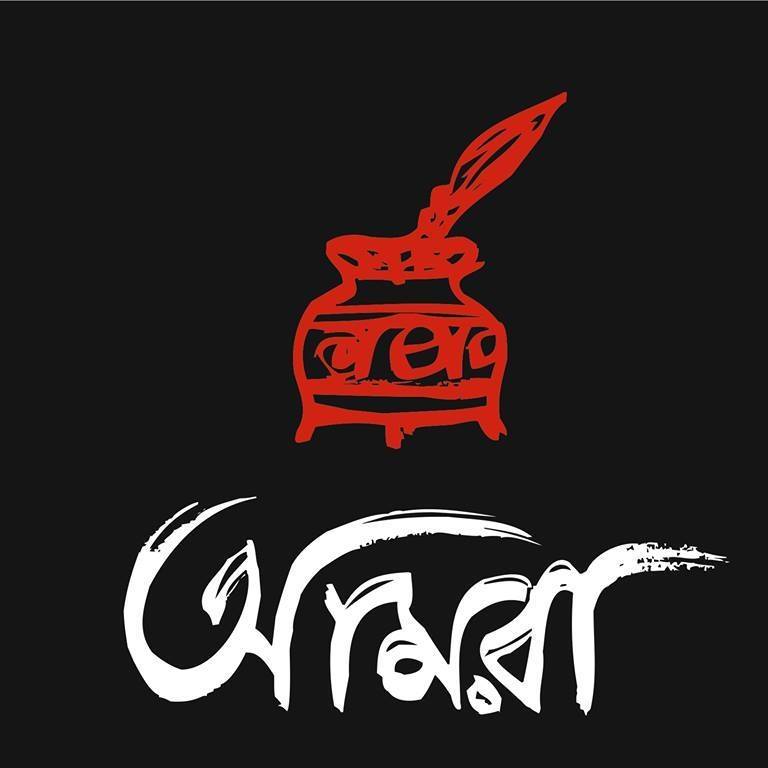
আমরা: এক সচেতন প্রয়াস
AAMRA is an amalgamation of multidisciplinary team of researchers and activists erstwhile worked as an assemblage of movement, research and activism. Popular abbreviation of AAMRA is, An Assemblage of Movement Research and Appraisal.-
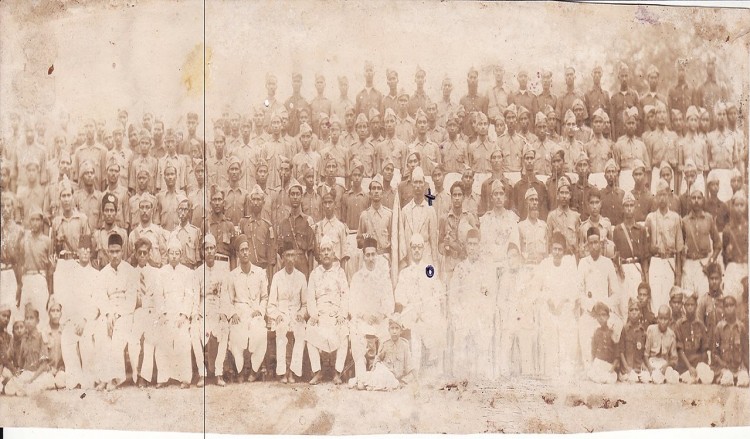
Muslims against Partition
'Muslims against Partition' is an important work for... -
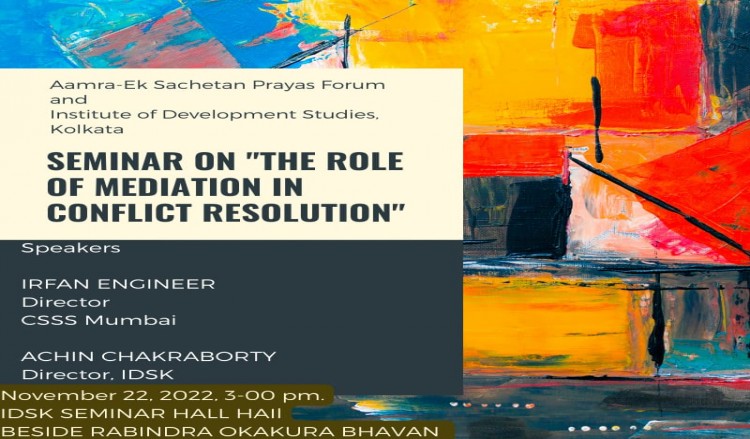
Seminar on Role of the Mediation in Conflict Resolution, IDSK Hall, Kolkata, 22 November, 2022
This seminar explores how a conflict area complicates... -

-
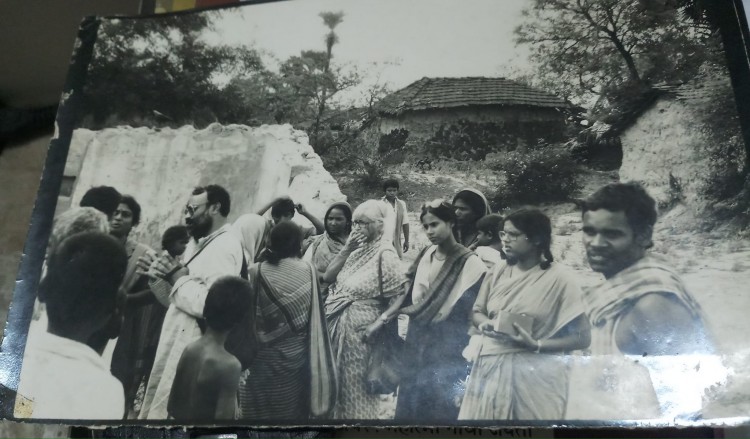
35 years of Bhagalpur riots
Reviewing the situational change after 35 years of Bhagalpur...
